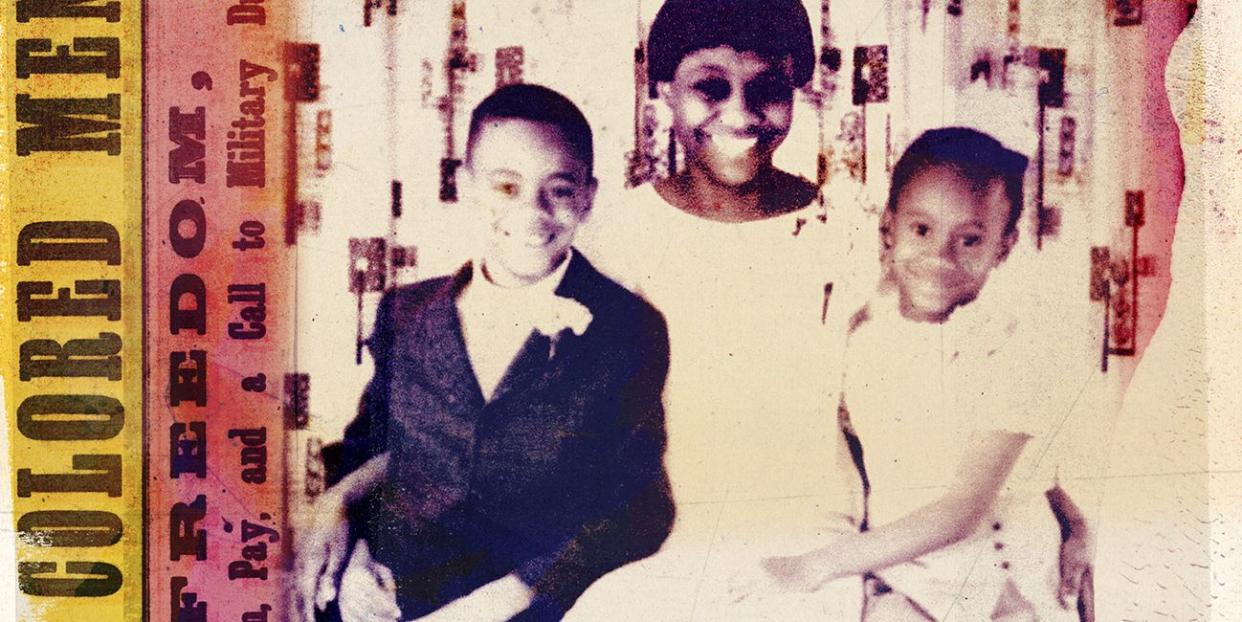Learning That My Grandfather Had Been Enslaved Changed How I Saw My Own Future

I lived with my great-grandparents when I was little, and I remember, when my great-grandfather was getting ready for bed, seeing scars on his back. I would always ask, “What are those? How did you get them?” And he would say, “You don’t want to know.” It wasn’t until after he passed that I learned he was from Madagascar and was brought to Virginia as a slave. He fought in the Union Army during the Civil War. When it was over, the government gave him a mule and 40 acres outside Courtland, Virginia.
As a girl, I walked all over those 40 acres, gathering eggs, picking berries. We had fruit trees—peach, apple, pear, plum. There were grapevines with plenty of room underneath where my great-grandfather had built swings for his ten kids. Honestly, I never knew how blessed we were until I was grown. Only later did I realize that the other Blacks in the area lived as tenants on a white man’s farm, while we had our own.
When it was time to go to junior high, I went to live with my parents in D.C.—my grandmother and mother worked as cooks there, and my dad was a chauffeur. I joined the church my great-aunt selected, and the pastor said to me, “I hear you’re from Nat Turner country.” I had no idea who that was. I asked my great-aunt, and she told me he was a slave who led a rebellion before the war; they hanged him from an oak tree near our farm.
That pastor must have been thinking, Here’s another child who doesn’t know her history! But my family hadn’t wanted to scare me—I had been frightened to no end when I was 5 or 6 and heard hooves late at night, then saw eight or ten white men on horses in our yard. They were “night riders” who would go out looking for Blacks who were holding meetings, organizing—who didn’t “know their place.”
I was grown up before it dawned on me all that my great-grandfather must have experienced. I don’t remember ever hearing in school about how the slaves got here—not in Virginia, not in D.C., not even in college, when I went to the Hampton Institute to study English.
After I graduated in 1951, I took a civil service exam and got a job at the National Security Agency, which collects valuable information to protect our country and its secrets, and handles cryptology and code breaking. I was employed by the NSA for 35 years, taking the testimonies of men who had been in the armed forces and helping them expressthemselves clearly. When I started, all the Black people worked in the same division—that’s how I met my husband, Bill.
After a year or two, they broke that unit up and sent us wherever they needed our talents. Well, you know how they felt about us in the beginning. We were slaves. We were their workers. We were deemed not worthy to be on the same level as whites because we were Black and always subservient. Everything was separate.
Then, finally, desegregation started to take place everywhere—in schools, churches, workplaces. I guess people finally realized that if you sat next to us, you wouldn’t die of a disease or turn Black. It took some getting used to on both sides, and a lot of effort to make it happen.
I followed the civil rights movement. But by the time it was really going on, we had our son and daughter, and I was busy raising children, keeping the house, working. I supported the protests, but I rarely participated. Still, when Martin Luther King spoke on the steps, I was there in that crowd. I was a distance away, but I was down there, because that was what you did.
All those years later, when we finally got a Black president, I was very happy. I was one of those who said, “What took so long?”
But now I’m thinking, Are my grandchildren or great-grandchildren going to have to live through the same thing I did? Because what’s going on with the Breonna Taylor incident and George Floyd incident has been just so brazen! It’s public killing. It’s just wrong, and we may have to go through another revolution.
I was 4 or 5 when my great-grandfather died. I know why he didn’t want to tell me about what he went through. But I wish I had pursued it. I wish I knew more. When they started pulling down those statues of Confederates all around the country, I realized I’d never thought about who those were statues of, or why we had them. My great-grandfather was a part of fighting all that.
And do you know, now his name is on the African American Civil War Memorial, right here in D.C., as part of the 38th United States Colored Infantry regiment: Kiah Diggs.
For more stories like this, sign up for our newsletter.
You Might Also Like

